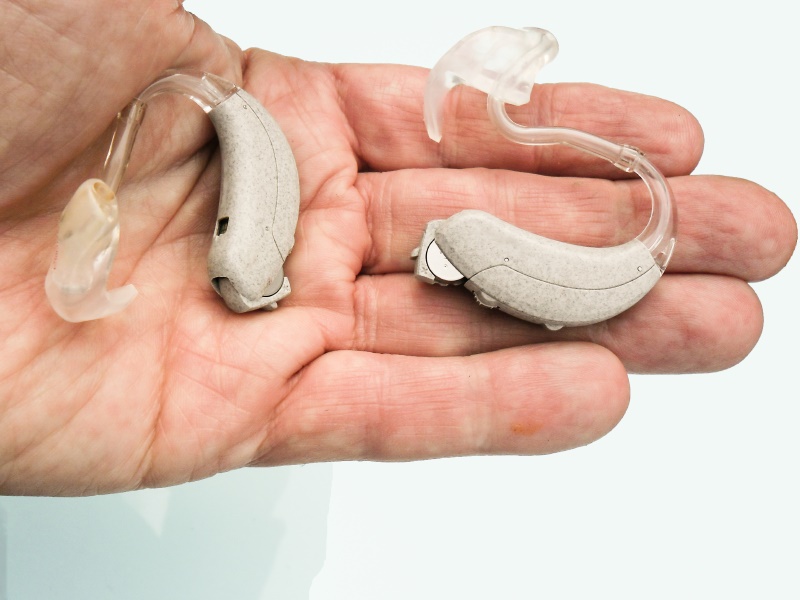
To keep your hearing aids functioning properly for years to come, you need to learn proper care and maintenance. And though it may seem like an additional burden, with the right approach your hearing aid care will become easy and automatic.
The key is creating productive habits.
If you include your hearing aid care into your day-to-day and nightly routines, before too long it won’t feel like any additional work at all.
Below are some tips for the daily care of your hearing aids (which your hearing professional will also review with you):
Clean your hearing aids daily – Try to integrate your hearing aid cleaning into your evening routine, so it will become as automatic as brushing your teeth. This is important because daily hearing aid cleansing can protect against the accumulation of earwax, dirt, and dust into the various components of the hearing aid, which can result in distorted sound over time.
You’ll want to clean your hearing aid with a smooth, dry cloth, while averting any fluids that can destroy the hearing aid electronics. Consult with your hearing specialist for special instructions on cleaning each style of hearing aid.
You might also wish to consider buying a hearing aid sanitizer, which uses ultraviolet light to safely and thoroughly kill hazardous pathogens. Hearing aid cleaning kits are also obtainable with all of the instruments you’ll require to safely clean the device without destroying the electronics.
Check the batteries – Hearing aid batteries should always be tested and replaced frequently to assure peak hearing aid functionality. Consider using a battery tester early in the day to ensure you have adequate power for the remainder of the day, and keep a spare set of batteries with you.
At night, when your hearing aids are not being used, turn them off and store them in a cool, dry spot with the battery door open.
Store your hearing aids in a safe and secure place – In regard to storage, you’ll want to keep in mind three things:
- Keep the hearing aids away from moisture. In other words, storing your hearing aids in the bathroom is probably a bad idea.
- Try to avoid exposing the hearing aids—and hearing aid batteries—to temperature extremes. You’ll want to store your hearing aids in a cool, dry place.
- Avoid storing your hearing aids out in the open, where they can become damaged.
We recommend storing your hearing aids in a case or drying kit inside the drawer of a bedroom side-table. This will defend the hearing aids from moisture, temperature extremes, and damage from being knocked off the table.
Also, always remove your hearing aids prior to taking a shower, swimming, or using a hair dryer or hair spray.
Maintain ear hygiene – While earwax has many advantageous properties, like protection and lubrication of the ear canal, it can cause severe damage to your hearing aids. As it gets wedged within the hearing aid components, sound can become distorted.
Make sure you’re keeping up proper ear hygiene, and if you have too much earwax, think about scheduling a visit with a professional.
Carefully insert your hearing aids – While putting in your hearing aids, lean over a table or soft surface in the event that the hearing aids fall. Hearing aids come with delicate electronics, so a fall on a hard surface can bring about significant damage.
Even with diligent cleaning and maintenance, over time the hearing aid will call for more thorough cleaning or repair.
To ensure that you continue to yield the best sound possible, we recommend getting your hearing aids professionally cleaned by a hearing professional at least two times a year.
Hearing care professionals can provide you with a deep cleaning, a tune-up, and will on occasion replace parts. Staying on top of this regular maintenance will prolong the life of your hearing aids and will ensure that you get the best sound.